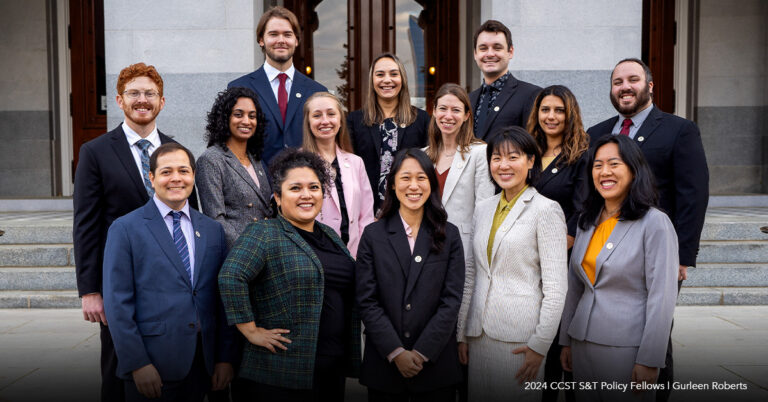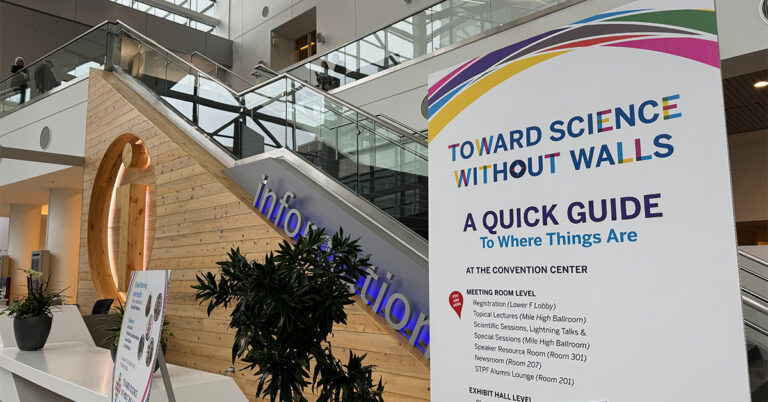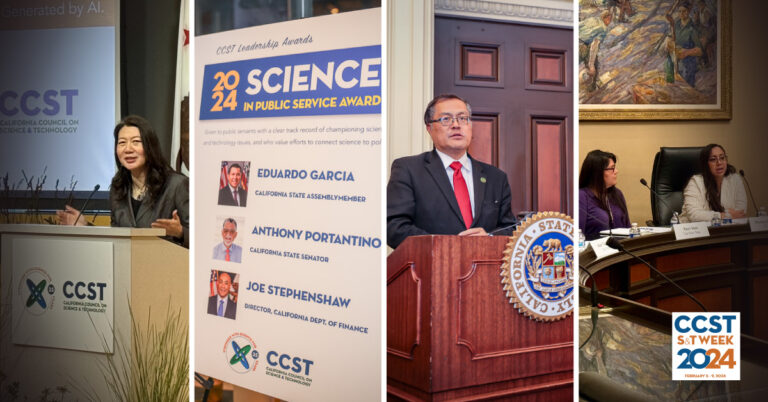Update: Applications for the CCST Science & Technology Policy Fellowship Have Closed
CCST Briefs Congressional Staff on Water and Education Work
July 1, 2014 | CCST Newsroom | Contact: M. Daniel DeCillis

CCST shared information on two of its projects with Congressional staffers in Washington, D.C. at a luncheon briefing hosted by the California Institute for Federal Policy Research.
Julie Meier Wright, CCST strategic advisor and former California Secretary of Trade & Commerce, presented an overview of the latest CCST water report, “California Water – Achieving a Sustainable California Water Future through Innovations in Science and Technology.” This report, which includes input from more than 150 water experts, provides an overview of California’s water cycle, the needs and challenges it faces at each stage, and the identification of innovation opportunities that the state could pursue in the near future. It envisions a path toward a sustainable water future for California achieved through a systems approach, utilizing innovations in science, technology and management, and provides both near-term and long-term recommendations to be pursued by a variety of agents.
Together with Karl Longley, Professor and Dean Emeritus of Engineering, California State University, Fresno and a member of the steering committee which produced the water report, Meier Wright also met with representatives from several Congressional offices over the following days, including Senators Barbara Boxer and Dianne Feinstein, Congresswomen Anna Eshoo, Doris Matsui, Grace Napolitano, and Jackie Speier, as well as Congressmen Jeff Denham, John Garamendi, Jerry McNerney, Scott Peters, and Scott Petersen; they also met with NSF Director France Cordova (a former CCST Council member) and other NSF staff.
CCST’s report on The Efficacy of Digitally Enhanced Education, the latest in a series of proceedings documents from symposia hosted by CCST’s California Teacher Advisory Council (Cal TAC) and sponsored by the S.D. Bechtel, Jr. and Stuart Foundations, was presented by Cal TAC Chair Heidi Haugen, Florin High School science and agriculture teacher and Vice Chair Andy Kotko, elementary school teacher, Folsom Cordova Academy for Advanced Learning. Together with CCST Washington Liaison for Education, Science, and Technology Angela Phillips Diaz, they also presented the report at the National Research Council’s Out of School STEM Learning: A National Summit and the National Academies Teacher Advisory Council meeting and attended the National Academies Grand Challenges in Education summit. The team met with staff from the offices of Congressmen Sam Farr, Michael Honda, and George Miller, and Congresswoman Susan A. Davis.
CCST connects with Congressional and federal offices on a regular basis to increase opportunities for collaboration and to expand awareness of CCST’s work.






